In Good Faith
In Good Faith
Secular Parenting in a Religious World
Maria Polonchek
Rowman & Littlefield
Lanham Boulder New York London
Published by Rowman & Littlefield
A wholly owned subsidiary of The Rowman & Littlefield Publishing Group, Inc.
4501 Forbes Boulevard, Suite 200, Lanham, Maryland 20706
www.rowman.com
Unit A, Whitacre Mews, 26-34 Stannary Street, London SE11 4AB
Copyright 2017 by Rowman & Littlefield
All rights reserved. No part of this book may be reproduced in any form or by any electronic or mechanical means, including information storage and retrieval systems, without written permission from the publisher, except by a reviewer who may quote passages in a review.
British Library Cataloguing in Publication Information Available
Library of Congress Cataloging-in-Publication Data Available
ISBN 9781442270664 (cloth : alk. paper)
ISBN 9781442270671 (electronic)
 The paper used in this publication meets the minimum requirements of American National Standard for Information SciencesPermanence of Paper for Printed Library Materials, ANSI/NISO Z39.48-1992.
The paper used in this publication meets the minimum requirements of American National Standard for Information SciencesPermanence of Paper for Printed Library Materials, ANSI/NISO Z39.48-1992.
Printed in the United States of America
For Chris
good faith
noun
honesty or sincerity of intention
Contents
Acknowledgments
I n many ways, this book is a love letter to my various families. They started out big and have grown even bigger: to the Rolfses, Rogerses, Lupos, Coops, Poloncheks, and Weavers, thanks for folding me in.
I also want to thank my writing teachers. In the early days, Nedra Rogers and Ken Hansard lit a fire in me and the English Department at the University of Kansas gave it oxygen: Brian Daldorph, Michael Johnson, Tom Lorenz, Doug Atkins, Maryemma Graham, Giselle Anatol, and Laura Moriarty, thank you for your time and encouragement. Mahlon Coop: you sealed the deal.
Several people helped shape this book through the early drafting stage: thanks to KC MacQueen, Kelly Barth, Katie Gray, Chris Baty, and Paige Deruyscher for your graciousness and time.
Michelle Hines, Rachel Knauss, Christina McIver, Donna Hill, Brian Rusch, Amy Polonchek, Beverly Rolfs, and Crystal Belle: thanks for the loud cheering from the sidelines.
I met some incredible, inspiring people through the writing of this book. I want to thank them for giving me a glimpse into how they are making the world a better place: Dacher Keltner, Chris White, Michael Steger, Donna Schuurman, Neil Carter, Rebecca Fraser-Thill, and Dale McGowan, thank you for your contributions.
Thank you to my agent, Jennifer Unter, who has taught me so much about patience, confidence, and persistence. Thanks to Suzanne Staszak-Silva and the team at Rowman & Littlefield for taking a chance. Thank you to my publicist, Sharon Bially, for that first Skype conversation and everything that followed.
An indebted thanks to the hermits at Sky Farm, Sister Michaela and Brother Francis, for sharing the wild turkeys, single bed, and blazing Sonoma sunshine.
Katie Savage: I cant even. Thank you for your help with this book, but especially for just seeing mealwaysand going with it.
Finally, the acknowledgments that wont do justice for what has been given. To my mom: the specifics are impossible to list. To Chris, for being an incredible human being, one Im so lucky to have met. You believe in me when I so often dont believe in myself. Big league. And to Luke, Taj, and Sola: the three of you may never know just how much youve given me. Youve encouraged me to grow in so many ways. Youve been so generous with your time and love and minds, without even realizing it. You inspire me to do better. Thank you.
Introduction
On Making It Personal
Illumination can emerge from asking the right questions, even if answers are not to be found.
Michael Krasny
I ts unprecedented, the number of people in this country who will publicly admit that theyre not religious. Its unprecedented, too, the amount of information we have at our fingertips instructing us on how to raise children. This is why I was surprised one Easter Sunday, after a distressing morning visiting church with extended family, when a quick Google search didnt bring me much on raising children without religion. Google usually brings me everything.
This particular weekend we were away from our home in the San Francisco Bay Area, visiting my brothers, sisters, nieces, and nephews, and we went with them to church. My siblings, our spouses, our kids: were close. Were lucky. Originally Midwesterners, most of us are now scattered up and down the California coast and make it a point to gather at least a few times a year. Ive heard the stories of families who dont get along and people who dread holidays and reunions. This has not been my experience, and Im incredibly grateful. Its not that weve sailed through family life on calm water; weve experienced our share of pain and grief. And like the tide to the shore, our connections to one another ebb and flow. But love, joy, and hope create room for temporal grace, and its in this space that we meet.
When my husband, Chris, and I visit family, we want to experience their lives. We sleep in their homes, visit the places they work and go to school, eat in their favorite restaurants. On Easter, we wanted to attend their church: my brother, a musician, plays in the band, and we know that church is an important part of who they are. After all, they spend more time with members of the congregation than they do with us.
My siblings and I grew up as children in an evangelical Christian home, and all of us have further constructed our own beliefs as adults, some of us staying closer to the original trail than others. I may be the furthest away, an apostate now and secular humanist, definitely a nonbeliever , though I rarely offer my private thoughts about religion in a group setting, even (especially?) with family. As someone who doesnt believe in God at all, I find little to contribute to my siblings nuanced debates over their respective Christian beliefs. Most of the time, these debates are kept to a minimum, and the brief detachment I experience as a nonbeliever is short-lived.
Up until this Easter service, the only other church services my children had attended were during Christmas at the Episcopal church of my husbands childhood. They had fun placing stuffed animals next to a manger at the altar and eating through tiny raisin boxes during the service. Back at their grandparents house, they played with little figurines in the decorative nativity scene and cooed over baby Jesus.
For Easter Sunday at my brothers, the kids asked to go to the childrens church service with their cousins, who promised magic markers and cookies in abundance. Chris and I agreed beforehand that attending church would be a learning experience for them and, being familiar with the message of most evangelical churches, I confirmed with my sister-in-law that the sermons at this particular one were generally positive and gentle. What harm would childrens church do? I dropped the kids off in their assigned room, settled into the adult service with the deep breath I can take during a break from three young children, and beamed with pride as my brother played his guitar in the band. This isnt so bad , I thought, feeling only slightly alarmed when the sermon focused on the inherent deficiency of mankind.
Oh, how it hit me after the service, then, when I collected the kids and my daughter, who was four at the time, who had rarely even seen commercials on television because Id been so protective of what she heard, asked, Did you know that baby Jesus grew up into a poor, hairy man who was kidnapped and beaten with leather straps?
What she said after that has become a blur in my memory, but it involved a spiky crown, nails, and blood. Lots of blood.
Next page
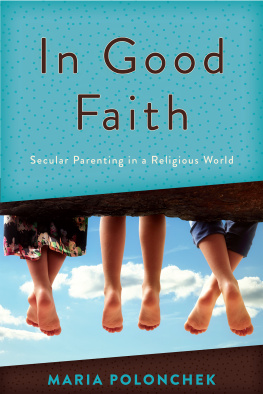

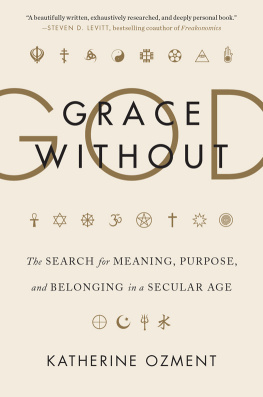
![Blackford - Freedom of religion [and] the secular state](/uploads/posts/book/167779/thumbs/blackford-freedom-of-religion-and-the-secular.jpg)
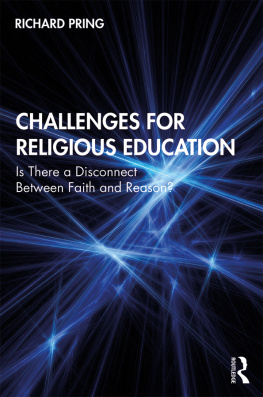
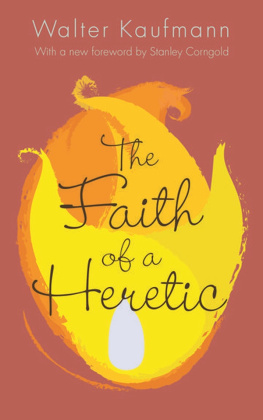
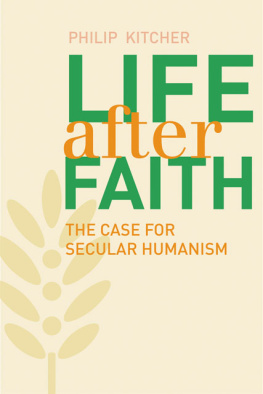
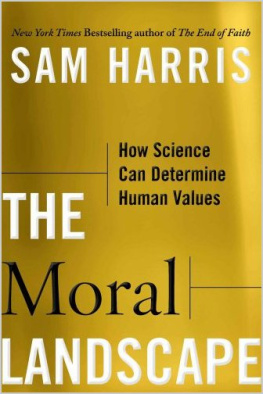
 The paper used in this publication meets the minimum requirements of American National Standard for Information SciencesPermanence of Paper for Printed Library Materials, ANSI/NISO Z39.48-1992.
The paper used in this publication meets the minimum requirements of American National Standard for Information SciencesPermanence of Paper for Printed Library Materials, ANSI/NISO Z39.48-1992.